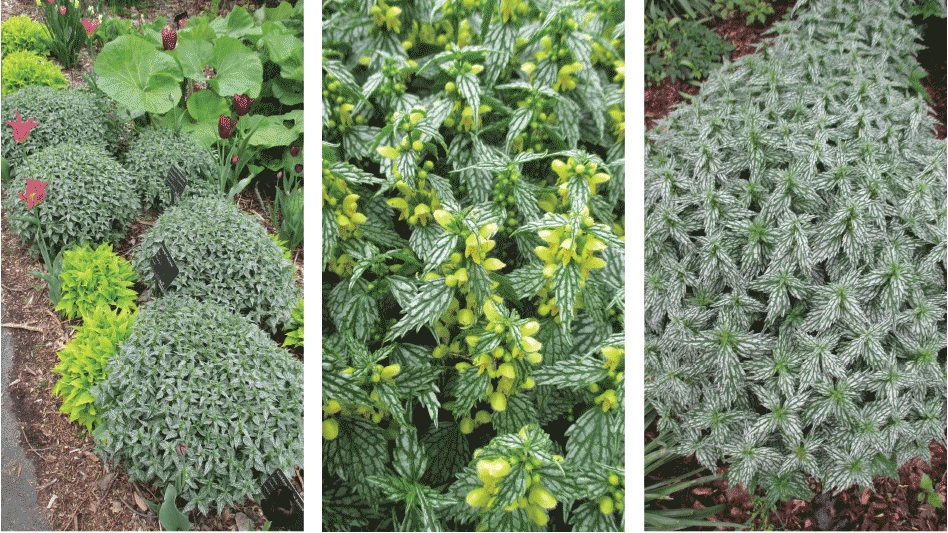 Storage can be the biggest headache when it comeWCs to reusing pots. Photo courtesy of Loma Vista NurseryCampbell’s Nurseries in Lincoln, Neb., has reused pots for the last 25 years, said owner Andrew Campbell. The nursery stores used pots in various sizes, and the crews reuse them as much as possible.
Storage can be the biggest headache when it comeWCs to reusing pots. Photo courtesy of Loma Vista NurseryCampbell’s Nurseries in Lincoln, Neb., has reused pots for the last 25 years, said owner Andrew Campbell. The nursery stores used pots in various sizes, and the crews reuse them as much as possible.
“The biggest problem we have had for the last few years is the ‘branding’ being done by the larger supplier nurseries. Don’t get me wrong – I firmly understand the move to brand their plants to the end consumer. But it makes life a lot more difficult in the reuse side. We have to stockpile them and hope we can find someone willing to recycle them.”
Campbell is in favor of the green industry coordinating plastic pots so they’re more easily recyclable along with more standard household recyclables.
“I believe the green industry does and should lead the way as much as possible in recycling efforts. Whether it is chicken feather pots or easily recyclable pots or something else, we really need to find a way to be more green in this area for the long term,” he said. www.campbellsnursery.com
Vineyard Gardens Inc. in West Tisbury, Mass., also has been reusing pots for years, said owner Charles Wiley. The 4-inch pots are dipped in a bleach solution before reuse, and the nursery has not had any noticeable disease problems, Wiley said.
The grower/garden center/landscaping firm stores a lot of used pots. But storing dozens of different types of pots is a headache, he said.
Recycling is extremely important on Martha’s Vineyard.
“I feel very strongly about this issue. Dealing with trash is expensive and time consuming, so the easier we make it to store and reuse pots, the better.” http://vineyardgardens.net
Recycling and reusing pots is a daily occurrence at Otten Bros. Garden Center & Landscaping in Long Lake, Minn. “We recycle all pots from our customers and our crews 365 days a year,” said owner John O’Reilly. The Minnesota Nursery and Landscape Association started a pot recycling program about five years ago. Most garden centers participated in the program, which took place over two weekends.
“It was driving traffic to our store, so now we do it every day,” O’Reilly said. “It’s not easy to do, but we save enough money on 4-inch pots to pay for the labor of sorting.”
Branded pots are the toughest to deal with when it comes to recycling, he said.
“We sent about 20 pallets of branded, off-size and miscellaneous pots to be recycled last year. The recycling facility is less than 10 miles away from us, so the program is great.” www.ottenbros.com
Reusing containers does require some labor costs, but keeping them out of the waste stream is important to Ed Knapton of Americas Best Flowers Garden Center in Cottage Grove, Wis.
“We have reused containers for years. It costs about the same when you include the extra labor costs to pull apart the pots and trays,” he said. “The extra labor and storage needed for reuse are the cons, but it makes our staff and customers feel good about the fact that we reuse the containers.”
The retail grower does not have any disease issues when reusing pots.
“We just knock out the dirt.” www.americasbestflowers.com
Get curated news on YOUR industry.
Enter your email to receive our newsletters.
Explore the July 2010 Issue
Check out more from this issue and find your next story to read.
Latest from Nursery Management
- NewGen Boxwood added to Proven Winners ColorChoice line
- Terra Nova releases new echinacea variety, 'Fringe Festival'
- American Horticultural Society names winners of 2025 AHS Book Awards
- Nufarm announces unified brand
- American Horticultural Society announces winners of 2025 Great American Gardeners Awards
- Shifting the urban environment
- The Growth Industry Episode 3: Across the Pond with Neville Stein
- What's in a name?







